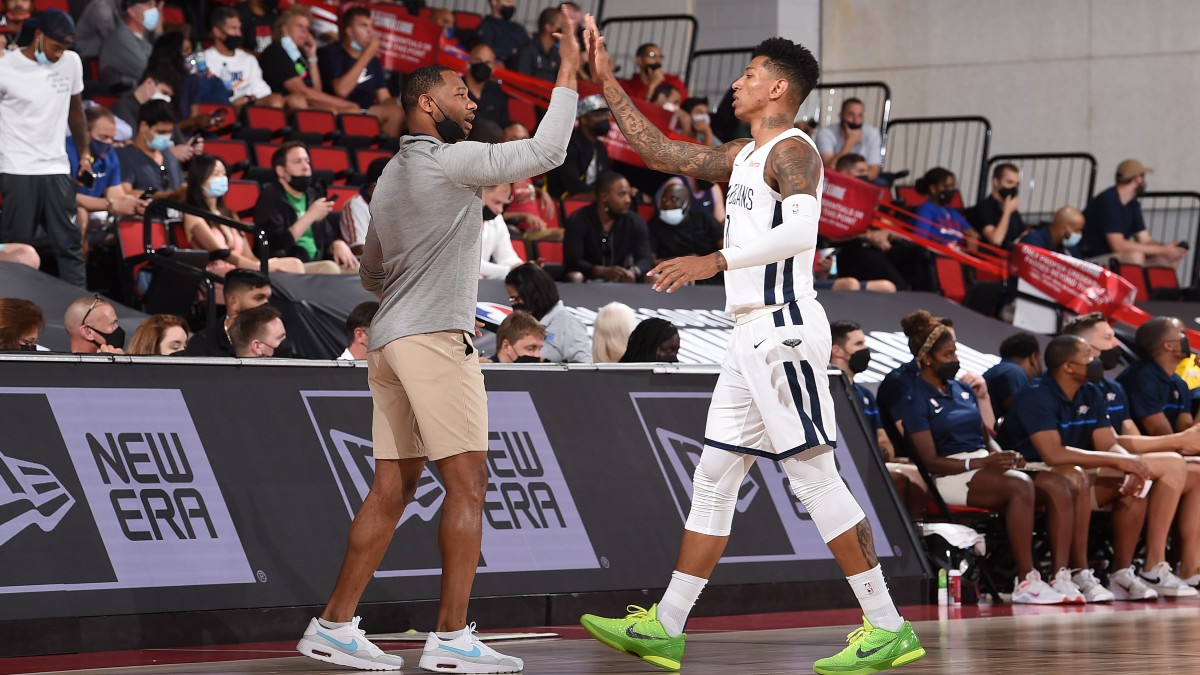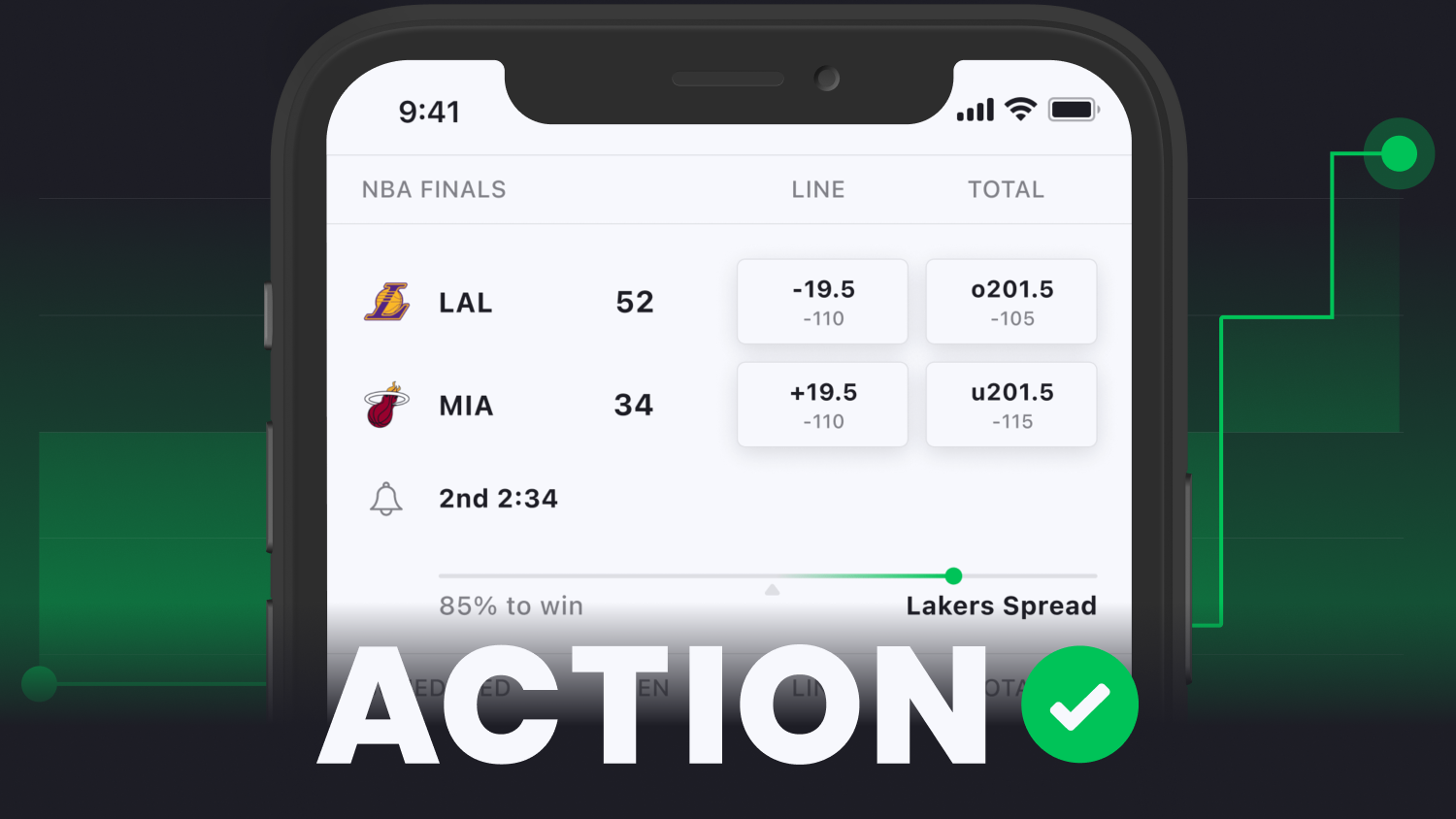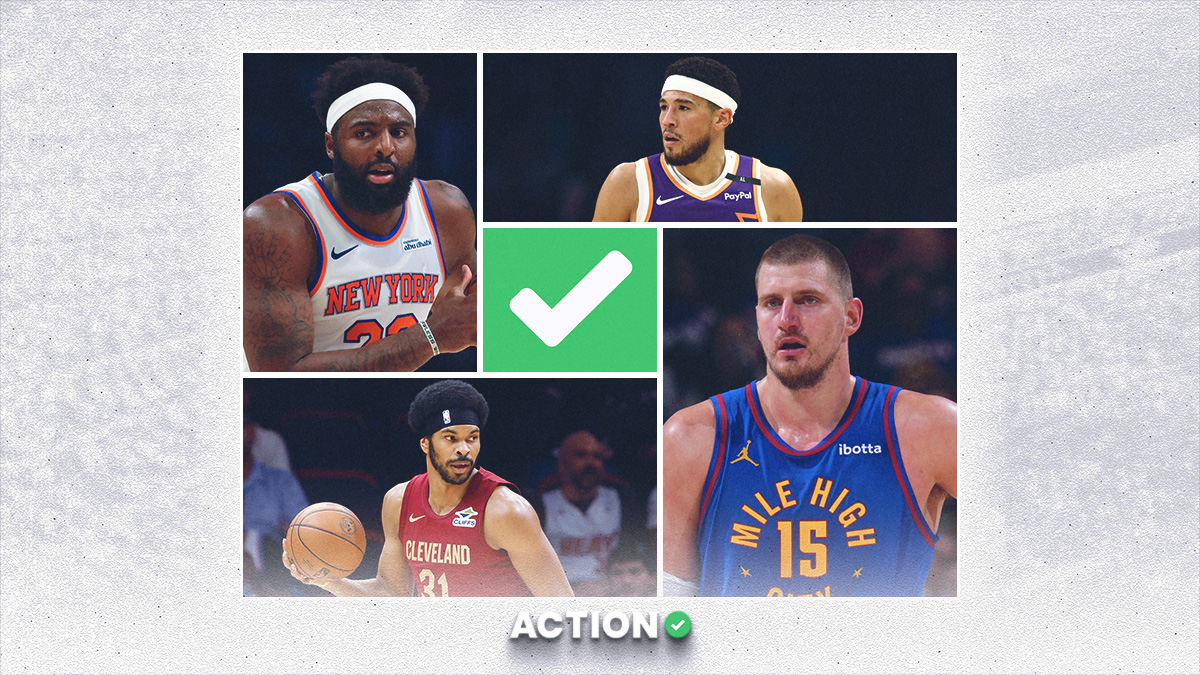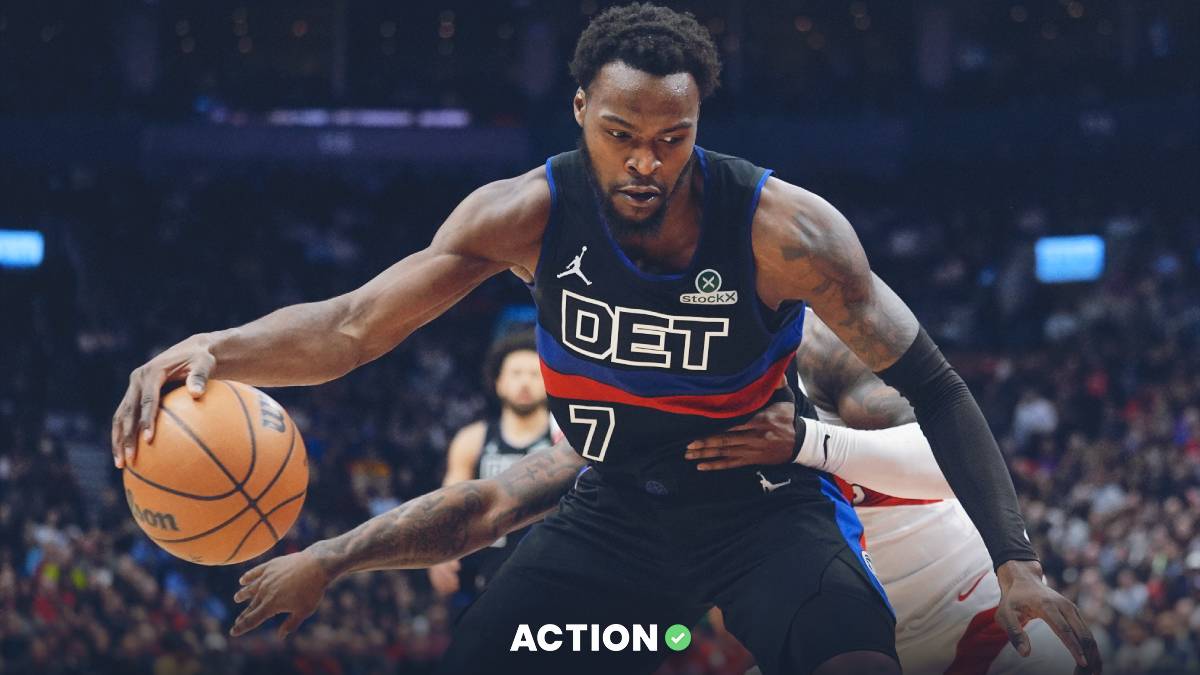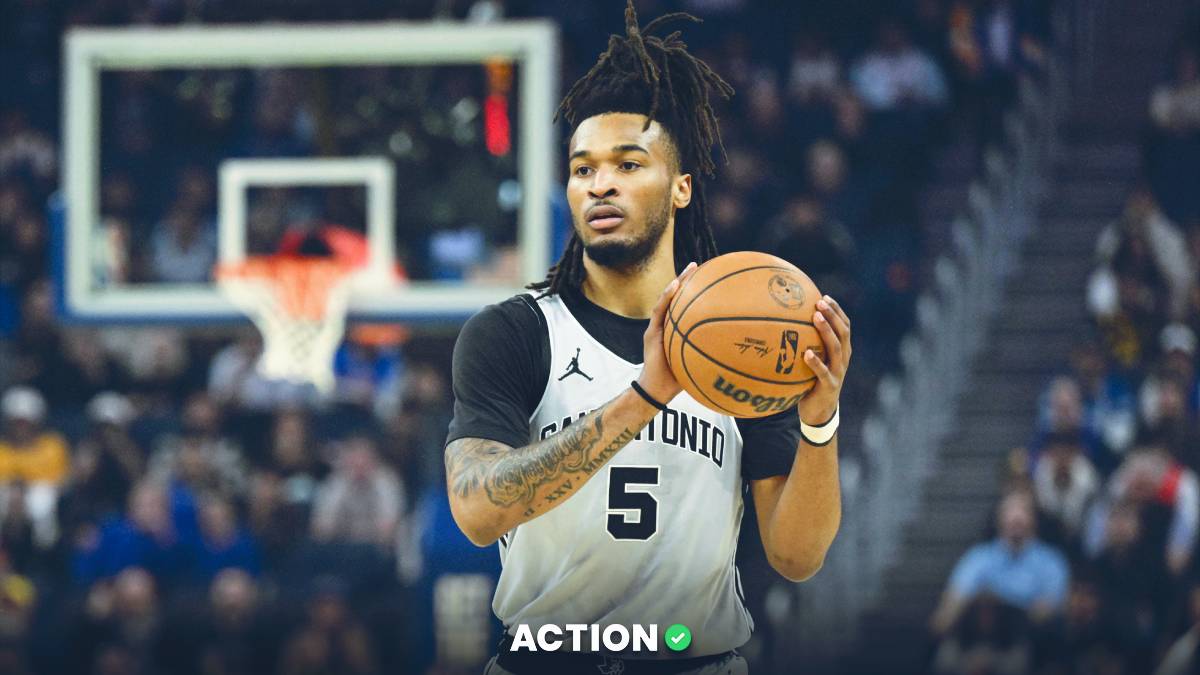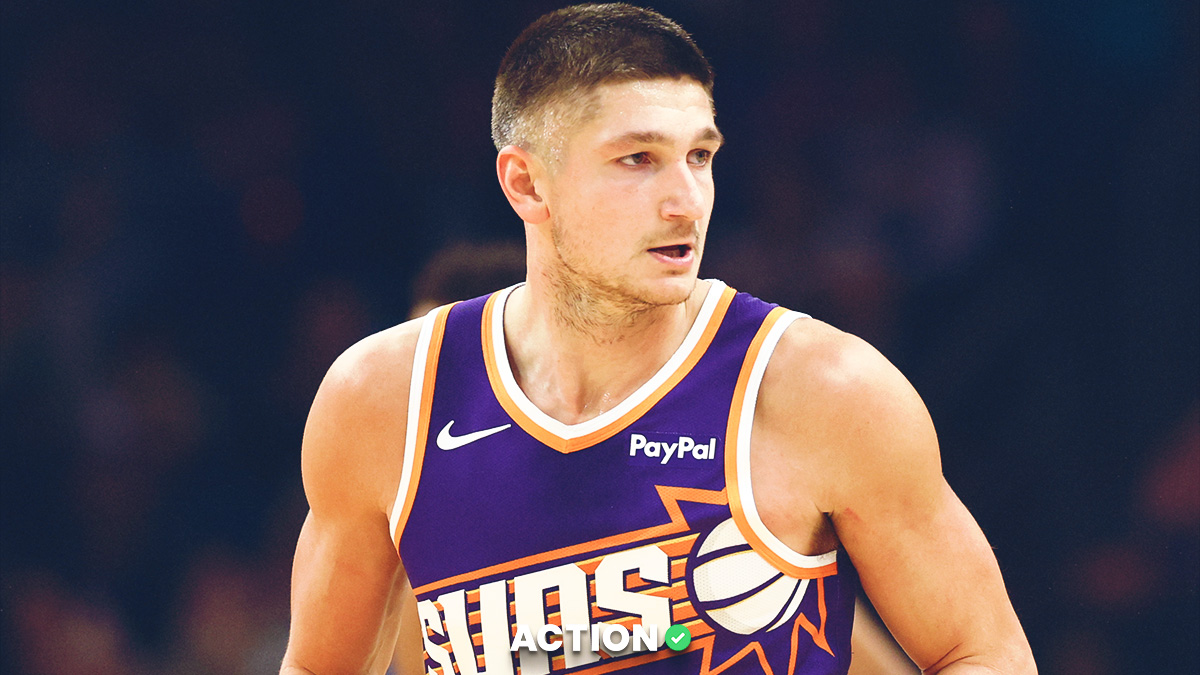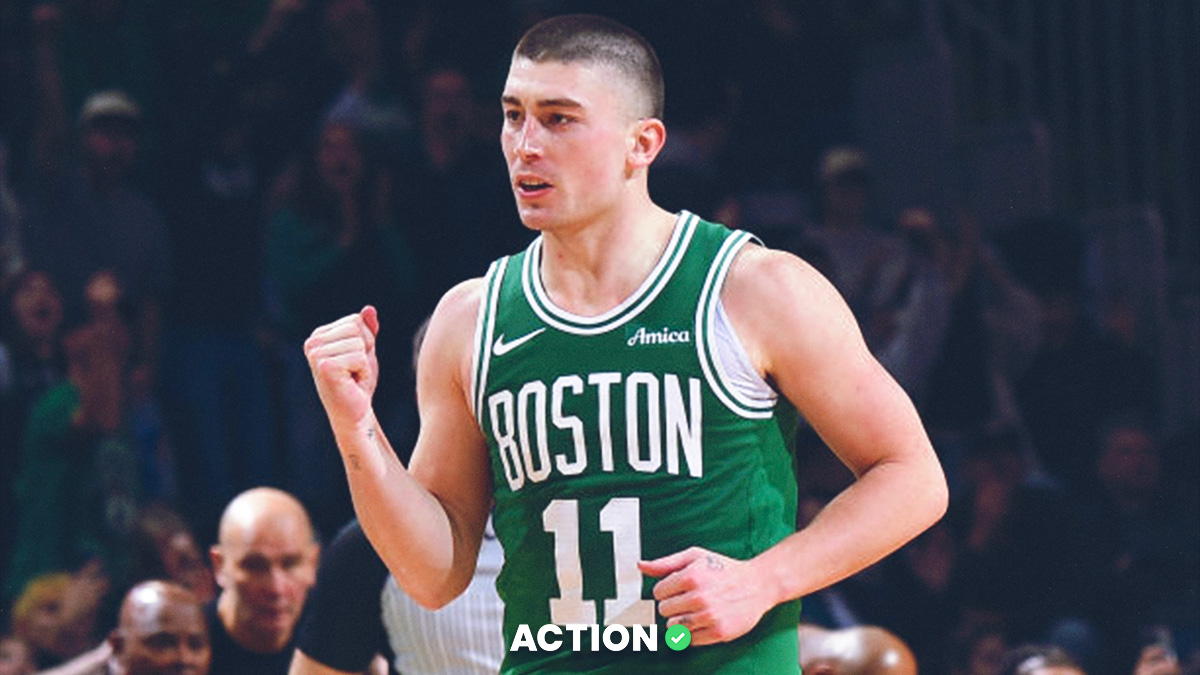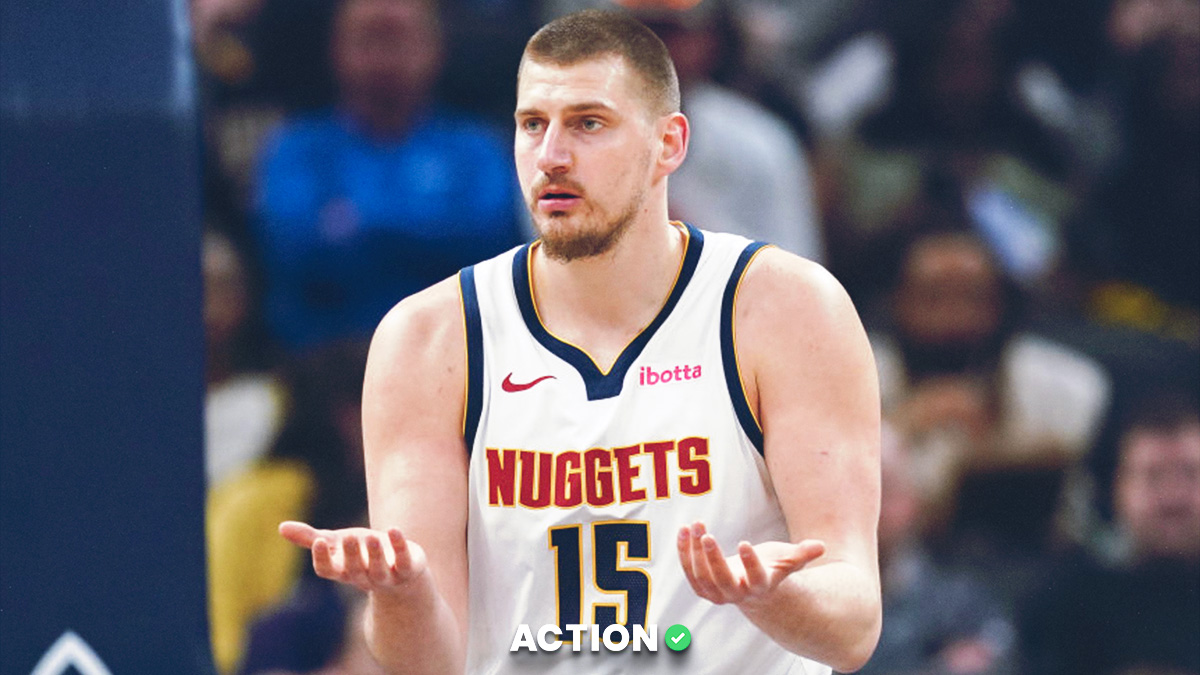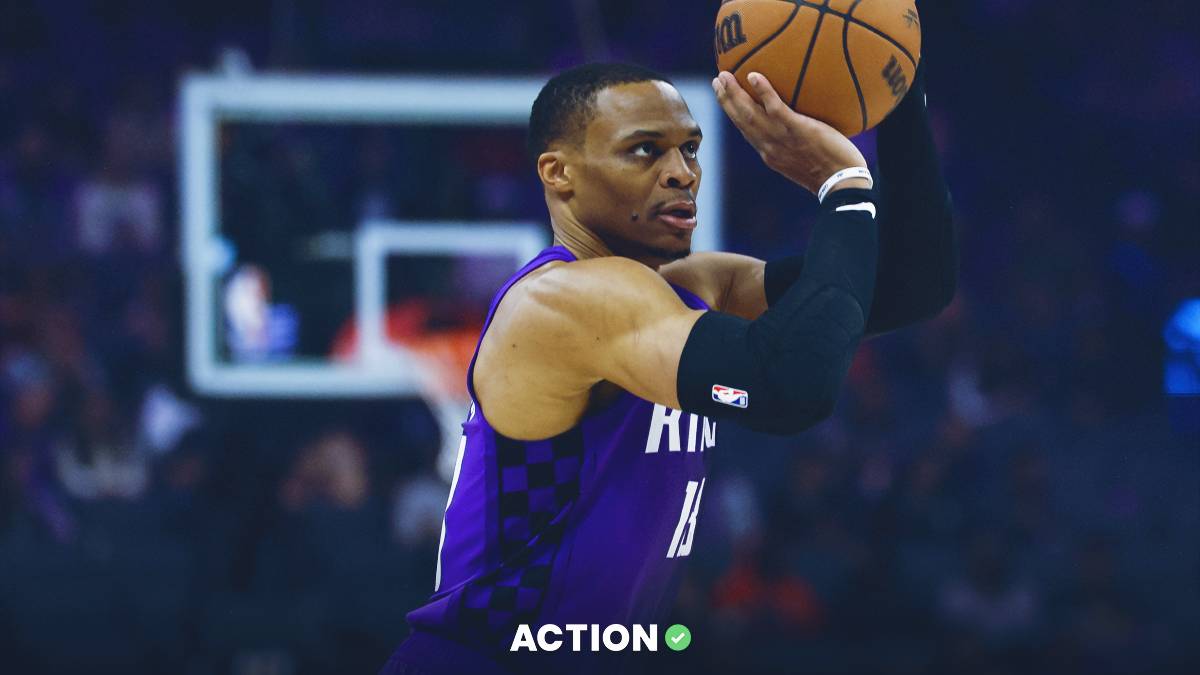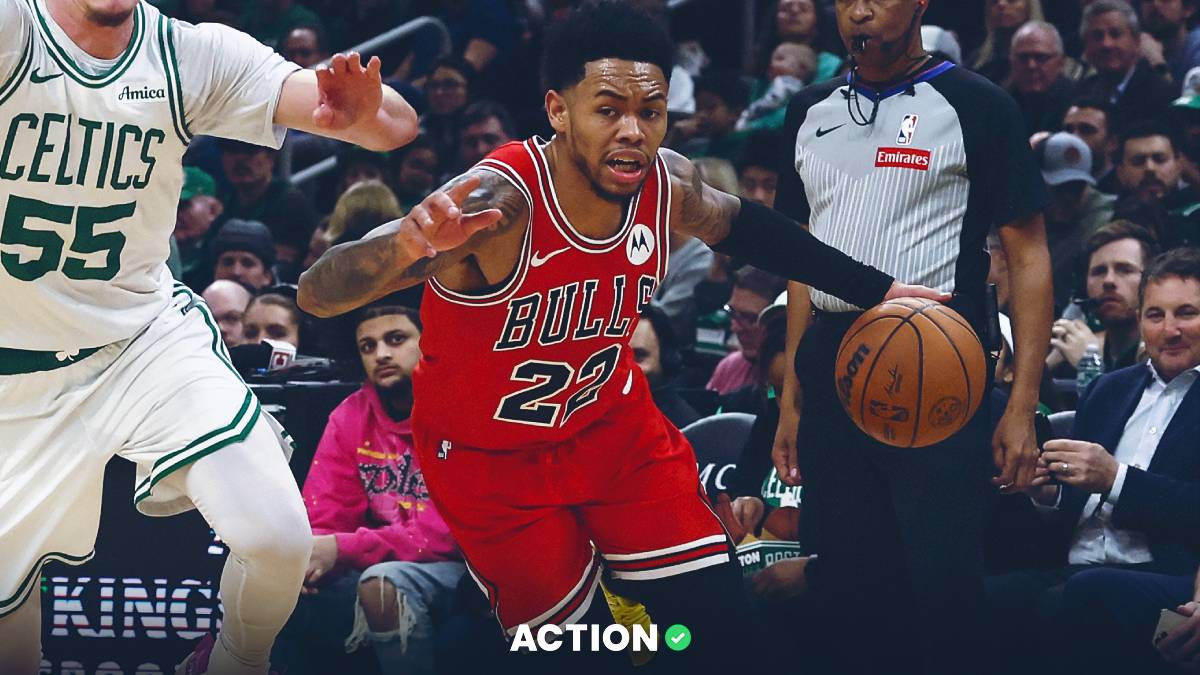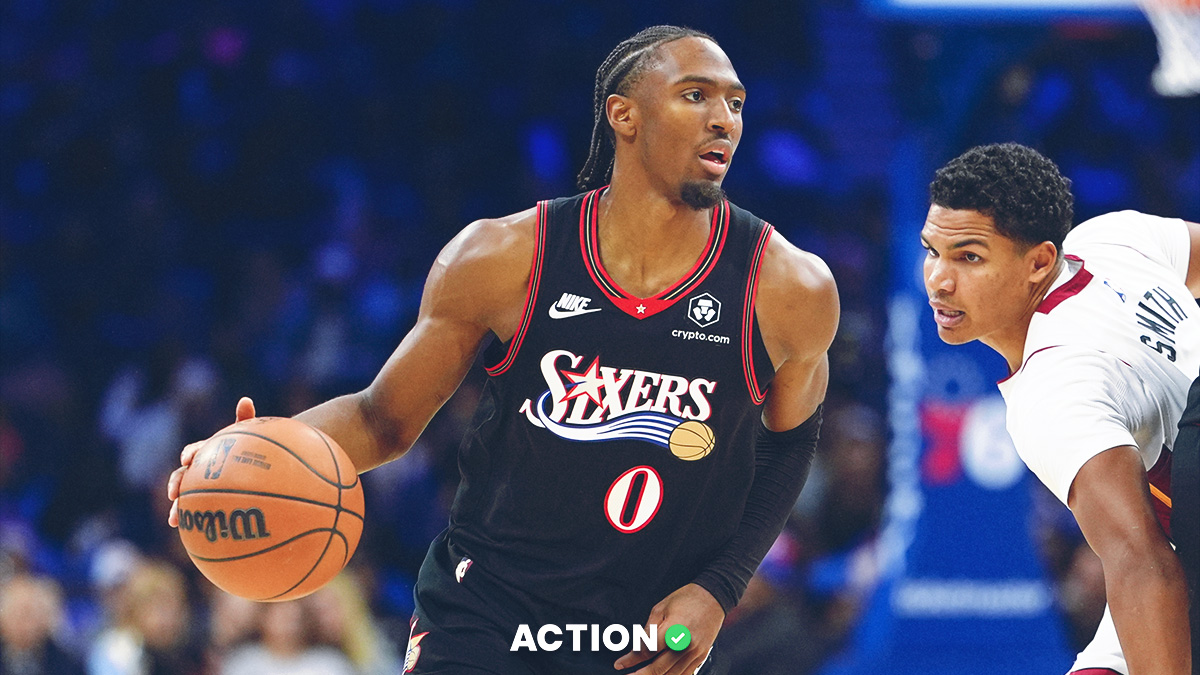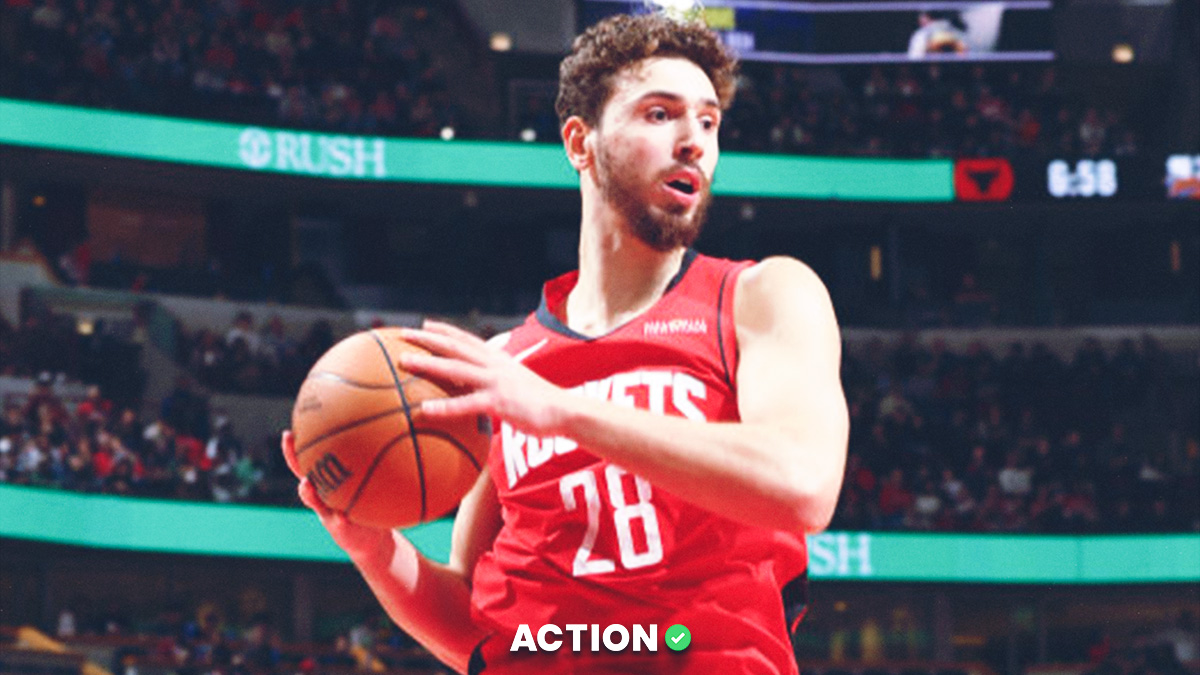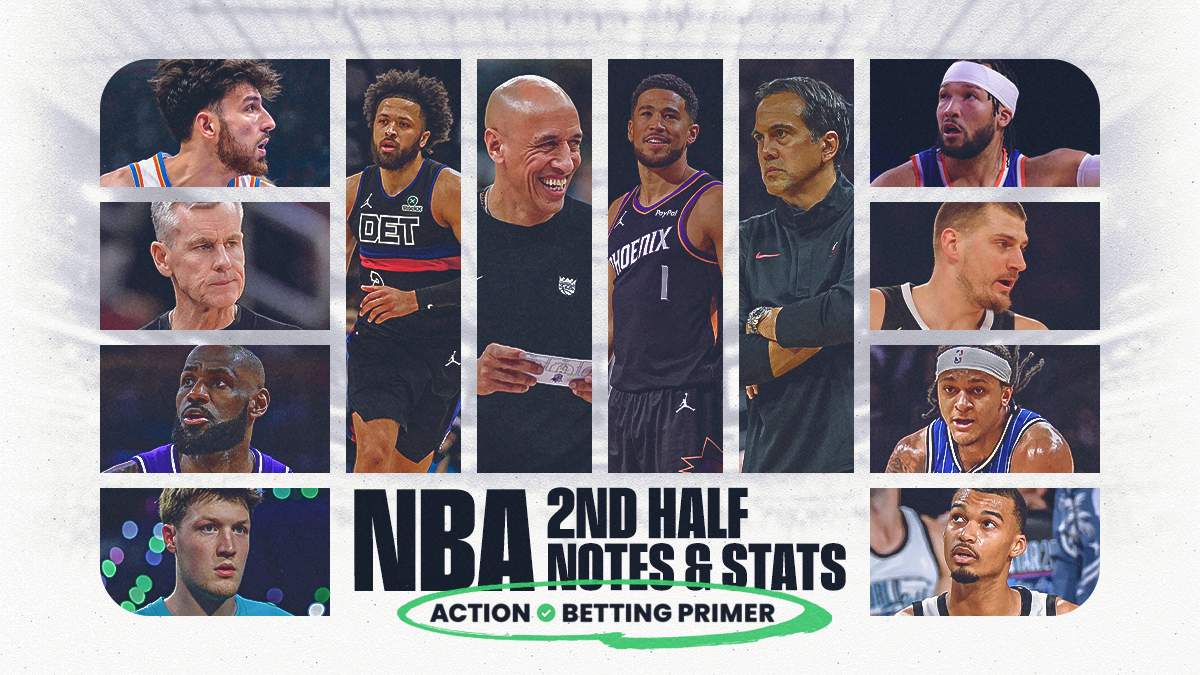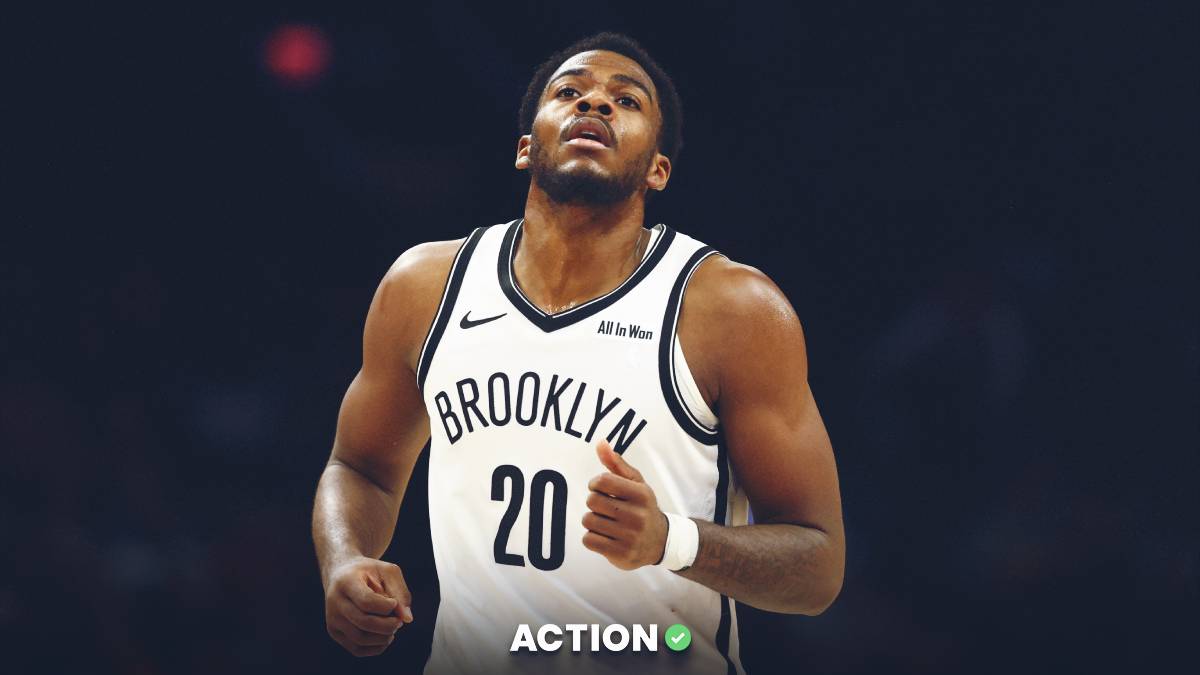The players barely know one another.
They've practiced maybe once and at most four times.
Everyone has a different reason for being there. Some are young millionaires learning new terminology. Some are second-rounders trying to earn guaranteed contracts. Some are international players and undrafted free agents trying to find a training camp contact, just to be noticed, for someone to take a chance on them.
The time is short, the to-do list long, and man, is it hot out.
Welcome to life as an NBA Summer League coach.
This is the story of what up-and-comers and longtime assistants face as they try and set the stones for the first steps of tomorrow's stars.
THE STARTING BLOCK
Some coaches get a few weeks of prep, some get a few days.
Grant Gibbs, head coach of OKC's G-League affiliate Blue, was told by Thunder head coach Mark Daigneault he'd be handling Vegas. As with all things Thunder, that meant a lot of prep work before the roster was even close to taking shape.
“Mark Daignault alerted me earlier in the summer I was going to do it. From there the process is meeting with him about what his expectations are and what he’d like to see.
Once I had my staff figured out, meeting with those guys on their specific responsibilities. What you don’t know is the majority of the roster because it’s made up of the draft," Gibbs said.
The Thunder went into the draft with three first-rounders and three second-rounders, eventually trading three of the picks. It was only then that Gibbs and his staff knew who would be on the roster and what the priorities would be.
"You figure out how you’re doing training camp. You have to do all the prep and pre-work because once the draft happens, it’s three days after that you’re right into training camp, trying to have those things thought out.
The buildup is more meeting, thinking about stuff, assigning stuff out, and then when you get the players it’s ready, set, go. The preparation is important because you don’t have a lot of time between finding out who the players are when training camp starts."
The NBA Draft was July 29, 2021. The California Classic Summer League featuring the Warriors began on August 3rd.
In the three days in between, Santa Cruz Warriors and Golden State Warriors Summer League head coach Kris Weems had to acclimate his staff and roster.
"We spend most of it watching film. We don’t have very much time together, three days of mini-camp trying to install some sort of offensive structure, a mentality of the organization, ball movement, passing, sharing, throwing the ball ahead," Weems told Action Network this week.
"It's easy to show on film, but guys have to really buy in.
We progressed through our games but that’s the challenge: How we go about selecting and figuring out guys' roles. When we lost to Orlando, the ball got sticky, and we didn’t move it as well, and it cost you some possessions. That’s how movement and sharing the ball – if you can get that mentality – it’s better for you."
One thing shared between the coaches who spoke with Action Network was that each was given instruction from their team's head coaches and front office, but before player-development goals or offensive principles, the most important element was culture. They needed to instill a sense of what the organization emphasizes.
With the Warriors, it was unselfishness. With the Hawks, it was defensive intensity and effort. With the Nuggets, it was attention to detail. And with OKC, it was professionalism.
These elements were essentially windows into the backbones of what those teams want to be as organizations from top level all the way down.
"Some of it’s scouting, some of it’s communicating with the front office on the vision for those players. But more than anything it’s environment acclimation, our Thunder standards, professionalism, and making sure that the first thing we hit those guys on is the importance of that and how that equates to the way we play basketball," Gibbs said.
"Making sure we hit those things on the front end and giving them a platform to play how we want to play and how we want to present ourselves."
Atlanta Hawks assistant coach Matt Hill echoed those sentiments.
"I think for us it’s implementing what we believe in and preach with the Hawks," Hill said, "trying to mirror that the best way we can with the Summer League roster. What we value, the style of play, the things that they can control. Competitive spirit, their effort, being organized.
Organization was often mentioned as the top priority, given that the environment is inherently chaotic.
ADVICE FROM THE TOP
Summer League coaches know they're being evaluated not on the win-loss record, but on their ability to translate the message the organization preaches. The institutional standards may come from the front office, but the basketball and competitive side is often drawn from the head coaches of the parent teams.
"Coach Malone is super intense, super competitive," Nuggets summer league coach Charles Clask said. "He wants to show the kids what it takes to win at this level. Effort and defensive intensity were non-negotiable."
Hill said Nate McMillan gave him latitude but similar guidelines.
"He let me run with it," Hill told Action this week. "He wanted a couple of things, just effort and how hard they played on the defensive ends. He wanted me to kind of take control and own. He’s been in a lot of meetings and given great advice. He’s given me the freedom to do it my way but with some coach McMillan rules and non-negotiables and effort/defensive intensity. "
THE CHAOTIC ENVIRONMENT
Summer League is a bit of a beautiful mess. It's mostly young players who have never played together thrust together in Vegas, of all places. But it's not just the short prep time that can cause gameplay to get away from the team's principles.
Every team is a mash of different agendas. In a way, Summer League is a more extreme version of life in the NBA. Yes, the teams have a combined set of goals, but each player has a career to watch out for and their own goals to pursue. Each wants a greater opportunity to prove what they can do.
Mix in the eagerness of rookies and the desperation of players on the outside trying to impress scouts, and it can get to be a perimeter-dominated, ISO-heavy mess.
"At our first team dinner we had, we said Summer League’s a unique place," Clask said. Where else can you get the spotlight of over 600 coaches and scouts?
We all have agendas, and we went around the room and asked what kinds of players do you want to play with? Everyone said 'unselfish, hardworking.' We told them, "All the scouts are looking for those players, too. So let's play that way."
Clask in particular faced a different challenge. The Nuggets were hit with a Health and Safety Protocols quarantine for Markus Howard, Zeke Nnaji, and first-round pick Bones Hyland. Just like in last year's bubble, the Nuggets were immediately shorthanded.
That's on top of many different agendas are on the minds of the various members of rosters in Vegas.
The difference in agendas means every Summer League coach has to take a different approach with nearly every member of the roster.
"It’s a challenge," Gibbs said. "There are times when you as a player are asked to do a little less and trying to do it this way is going to get you closer to getting that spot rather than being like 'Nah, this is what I do, this is how I play.' You have to stress how to work together in a team environment where it’s not really built for that. It’s built for an individual thing."
"You try and get them involved in one or two sets and moves it and get it through hands," Hill said. "What you don’t want is playing too much perimeter offense and being too guard dominant and then it turns into 1-on-1 isolation basketball."
That style is prevalent at Summer League. The teams that don't have a lot invested in those teams are easy to spot and generally have ball-handlers with high usage rates.
But for other coaches, they're trying to instill organizational aspects that will carry over into training camp and seasons with the main team or the G-League affiliate.
This is where the most fundamental aspect of pro coaching takes shape. The coaches have to try and instill trust in players. Not just to listen, but to surrender a degree of control over their careers, short-term or long-term.
"The first part of our job is relational trust," Gibbs said. "They have to feel like it’s a partnership. It’s not me telling you you need to do this. It’s me coaching the group, and you being part of the group, understanding what you can get better at.
"It’s different for every guy. It’s easy for us to be like 'Oh, he’s kind of like (so-and-so),' but you can’t put them into a box of how you should address them or what’s going to work for them. Mark (Daigneault) always uses the phrase 'you have to meet ‘em where they are.'"
"Some of these guys, they’ve been in the NBA for years and feel they didn’t get the opportunity. You have to meet them where they are instead of saying 'no, that’s not what happened.'"
THE DEVELOPMENT
Several coaches said one of the earliest benefits of Summer League was introducing the rookies to the terminology that teams use on-court. You establish cultural habits and standards and get them used to the way their teams approach practice, terminology for plays and schemes, and get their feet wet under those conditions.
For the veterans, oftentimes there are more specific elements at work. The Nuggets wanted to see second-year man Zeke Nnaji defend multiple positions to work on his switchability. The Grizzlies stressed playmaking and floor generalship to 2nd-year shooter Desmond Bane.
Front office and coaching staffs attend meetings before Summer League to set priorities for the players in terms of not only playing time, but also style and skill development.
The league instituted a championship game in recent seasons, but the value of wins and losses in summer league varies from team to team.
"Coach Malone told me not to get overconsumed with the final result," Clask said. "But at the same time, he and I agree that the importance of winning and the importance of development have been separated, and I don’t think they have to be."
"It’s really easy to get attached to wins and losses or bad shooting or bad calls,' Gibbs notes about both Summer League and G-League play. " The more you can try and differentiate that from what your job is, which is to create your environment where players and staff can grow. Think about the decisions you make every day that will help that."
"It’s easy to just fixate on those things. 'We made a great substitution and won the game, we did it!' It’s more 'Is this set up every day for them to be their best, and is there a continuation of learning and growing they’re feeling every day?'"
DIFFERENT PATHS
Weems has been a part of the Warriors organization off and on since 2011, and his role with Santa Cruz has given him access to both Mark Jackson and Steve Kerr's staffs. That Weems has been integrated as much as he has speaks to the impact he's had in G-League play.
Likewise, Gibbs is well integrated into OKC's structure as coach of the Blue. The development pipeline is apparent in teams that have dedicated the resources to their G-League teams as the Warriors and Thunder have. Gibbs is seen by several in the G-League community as one of the up-and-coming talents.
Clask has been an assistant with the Nuggets for four seasons as a player development coach. The Nuggets, even without a G-League team (until this upcoming season) have been at the forefront of player development.
They've had so many successful players come through the system that the team has been forced to trade several of them who remain on rosters, including Jusuf Nurkic, RJ Hampton, Juancho Hernangomez, and Malik Beasley.
Hill is regarded as a potential head coach in the future. After a deep run in the playoffs with the Hawks to the Eastern Conference Finals, he had less than a month before Summer League. Now, he's got just a few weeks before Hawks players will return for pre-preseason open runs and workouts. Then it's back to 82 games.
That's how it goes for coaches on the rise.
As Hill said, "You’re so grateful for the year you’ve had and how far you went. You gotta get the rest when you can,"


